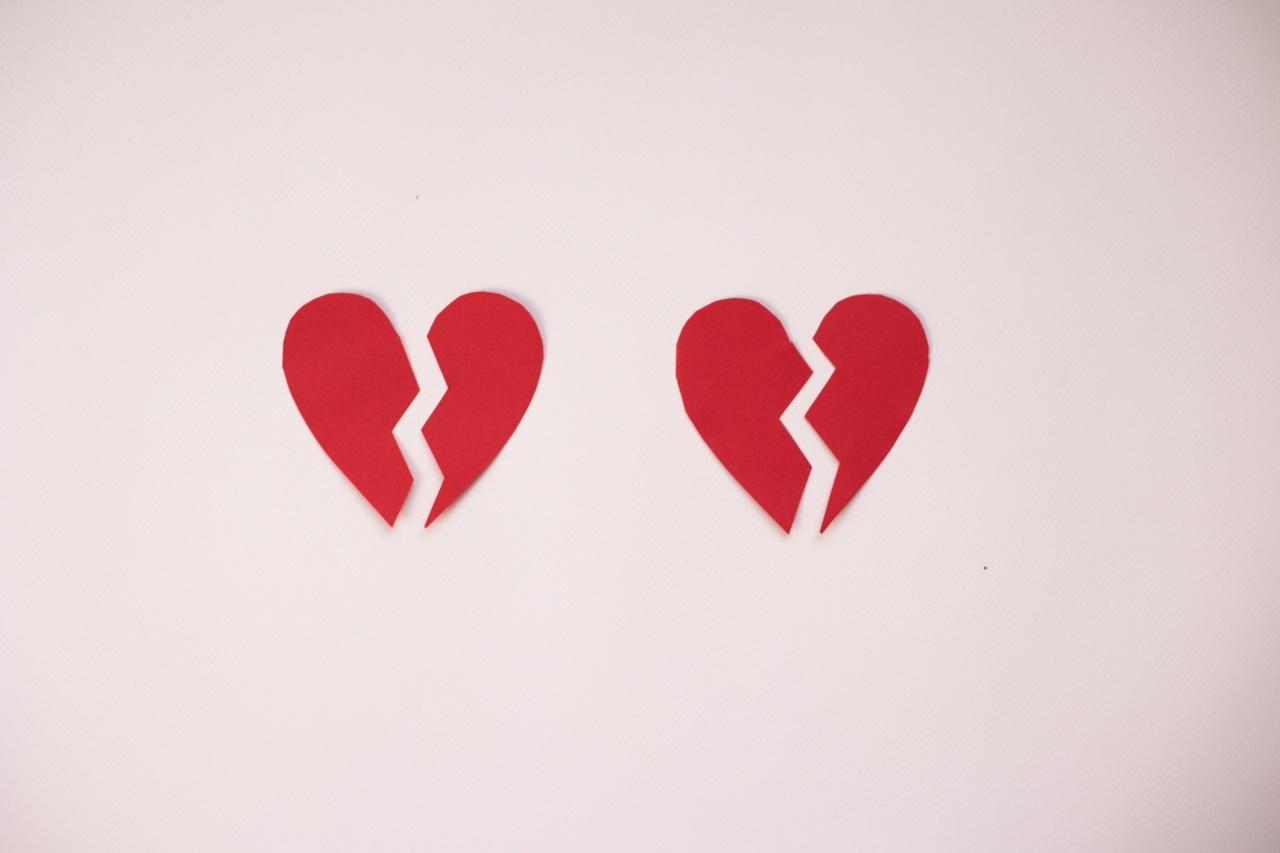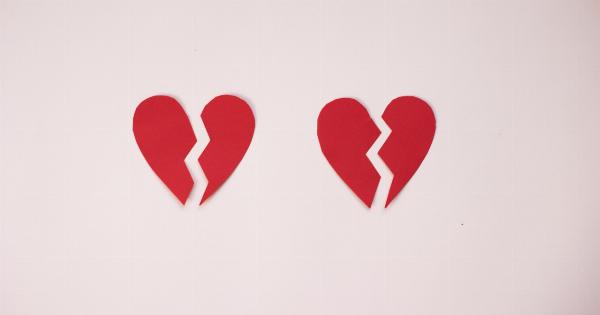Broken heart syndrome, also known as stress-induced cardiomyopathy, is a temporary heart condition that is often triggered by a stressful or emotional event.
While the symptoms of broken heart syndrome may mimic a heart attack, it is important to note that the condition is not caused by blocked arteries. In this article, we will explore the causes, symptoms, and treatment options for broken heart syndrome.
The Causes of Broken Heart Syndrome
The exact cause of broken heart syndrome is still not fully understood. However, it is believed that a surge of stress hormones, such as adrenaline, can temporarily stun the heart and disrupt its normal functioning.
This surge of stress hormones is often triggered by a traumatic event, such as the death of a loved one, a breakup, or a major life stressor.
Symptoms of Broken Heart Syndrome
The symptoms of broken heart syndrome can be similar to those of a heart attack. They may include chest pain, shortness of breath, irregular heartbeat, and fainting.
It is important to seek medical attention immediately if you experience any of these symptoms, as both broken heart syndrome and heart attacks require prompt medical intervention.
Diagnosing Broken Heart Syndrome
In order to diagnose broken heart syndrome, your doctor will likely perform a physical examination, review your medical history, and order certain tests.
These tests may include an electrocardiogram (ECG), echocardiogram, blood tests, and a coronary angiogram. These tests can help rule out other potential causes of your symptoms and confirm a diagnosis of broken heart syndrome.
Treatment for Broken Heart Syndrome
Most cases of broken heart syndrome resolve on their own within a few weeks or months, without the need for specific treatment. However, depending on the severity of your symptoms, your doctor may prescribe medications to help manage your condition.
These medications may include beta-blockers to reduce your heart rate, ACE inhibitors to lower blood pressure, and diuretics to reduce fluid buildup.
Preventing Broken Heart Syndrome
While it may not be possible to completely prevent broken heart syndrome, there are certain steps you can take to minimize your risk. These include finding healthy ways to cope with stress, such as exercise, meditation, or talking to a therapist.
Building a strong support network of family and friends can also help reduce the impact of emotional stressors on your heart.
Complications of Broken Heart Syndrome
Most cases of broken heart syndrome resolve without complications. However, in rare cases, the condition can lead to more severe complications, such as heart failure or life-threatening arrhythmias.
It is crucial to follow your doctor’s recommended treatment plan and attend regular follow-up appointments to monitor your heart health and prevent any potential complications.
Support and Coping Strategies
Dealing with the emotional aftermath of broken heart syndrome can be challenging. It is essential to seek support from loved ones and consider joining support groups or seeking therapy.
Talking about your feelings with a trusted friend or professional can help you navigate the emotional journey of healing from a broken heart.
The Road to Recovery
Recovering from broken heart syndrome can take time and patience. It is important to listen to your body and allow yourself to rest and heal. Engaging in stress-reducing activities, such as yoga or hobbies you enjoy, can also aid in your recovery.
Remember that everyone’s healing process is unique, and it is essential to be kind and gentle with yourself as you progress on the road to recovery.
Conclusion
Broken heart syndrome is a temporary heart condition that can be triggered by a stressful or emotional event.
While the exact cause of the syndrome is still unknown, it is believed to be related to a surge of stress hormones that disrupt normal heart functioning. Although most cases resolve on their own, it is crucial to seek medical attention if you experience symptoms similar to a heart attack.
By taking preventive measures, seeking support, and following your doctor’s advice, you can navigate the path to recovery and heal from a broken heart.


























